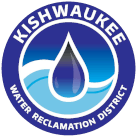Info for Municipalities/Developers
-
How Do I Annex or Connect to the KWRD?
If you own property contiguous to the District, you may petition the Board of Trustees to annex to the District and receive its services. In rare instances, property near by not contiguous to the District can be pre-annexed. If the Board approves the annexation, fees are $3,000 per acre.
To accommodate the demand of new construction on the wastewater system, a connection fee is assessed on each new hookup. The fee is $600 per Population Equivalent (P.E.), defined by the EPA is 100 gallons of wastewater per day. LEARN ABOUT BUILDING IN THE DISTRICT
For more information about pre-annexation, annexation, and connection, contact Executive Director Mark Eddington, P.E., at (815) 758-3513. MAP OF DISTRICT BOUNDARIES
-
I'm Planning a New Development. How Do I Tie in to the Sanitary Sewer?
We will meet with you for a no-cost initial consultation to talk about your plans.
KWRD takes an active role before, during, and after the installation of new infrastructure in its Facilities Planning Area. It's our responsibility to make sure new development does not have a negative impact on either the sewer system or the treatment plant. BUILDING IN THE DISTRICT
Meet with Executive Director Mark Eddington, P.E., as early as possible in your planning process. We will make sure you understand the procedures, rules, and regulations both the District and the EPA require you to follow. This can help you avoid costly delays farther down the line.
-
What Does It Cost to Tie a New Development into the District?
If you are annexing new property into the District, the annexation fee if $3,000 per acre.
Plan review fees are assessed based on the size and complexity of each project.
Connection fees are $600 per Population Equivalent (P.E.). BUILDING IN THE DISTRICT
-
Does the District Serve Communities Outside of DeKalb?
In 2016, the DeKalb Sanitary District reorganized as the Kishwaukee Water Reclamation District. This name change better reflects our status of a regional utility that can extend our services beyond municipal limits to smaller communities finding the cost of maintaining their own treatment facilities to no longer be practical. Government officials in the municipalities surrounding DeKalb can reach out to the District to explore the feasibility of joining their community to the District’s system.

